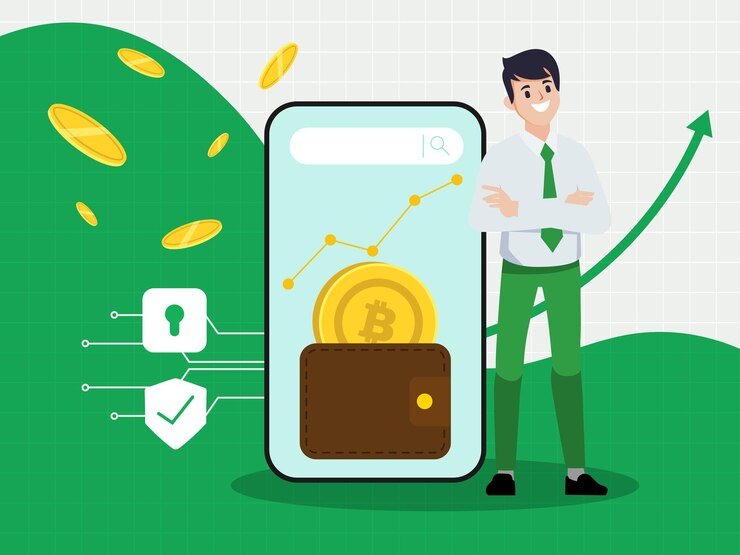A Bitcoin wallet serves as the cornerstone of managing one’s cryptocurrency holdings. Acting as a virtual vault for storing bitcoins, it grants users access to their digital assets, facilitating transactions and ensuring security in the burgeoning landscape of the US cryptocurrency market. However, as the popularity of Bitcoin continues to surge, so too do the efforts of hackers seeking to exploit vulnerabilities and compromise Bitcoin wallets.
Understanding Bitcoin Wallets
A Bitcoin wallet is essentially a digital tool that enables users to store, send, and receive Bitcoin securely. It consists of two main components: a public address, which functions as the equivalent of an account number for receiving bitcoins, and a private key, akin to a password, used to access and manage the stored bitcoins. These wallets come in various forms, including software wallets, hardware wallets, and paper wallets, each offering distinct advantages in terms of security and convenience.
Addressing Bitcoin Wallet Security Issues
Despite the inherent security features of the Bitcoin network, Bitcoin wallets are not immune to security threats. Hackers employ various tactics to gain unauthorized access to Bitcoin wallets, including phishing attacks, malware, and social engineering schemes. Additionally, vulnerabilities in wallet software and human error can also expose wallets to potential breaches, underscoring the importance of implementing robust security measures.
Securing Your Bitcoin Wallet
Utilize a Secure Platform
When selecting a platform or service for your Bitcoin wallet, prioritize security. Choose reputable and trusted providers that employ stringent security protocols and encryption techniques to safeguard users’ funds. Conduct thorough research and read reviews to ensure the platform’s credibility and reliability in the face of evolving cyber threats.
Employ a Strong Password
Strengthen the security of your Bitcoin wallet by using a strong and unique password. Avoid common passwords and opt for a combination of uppercase and lowercase letters, numbers, and special characters. This significantly reduces the risk of unauthorized access to your Bitcoin wallet by thwarting brute-force attacks and password-guessing attempts.
Regularly Update Your Password and Use a Password Manager
Enhance the resilience of your Bitcoin wallet by periodically updating your password. Set a schedule to change your password at regular intervals, such as every few months, to mitigate the risk of potential breaches. Additionally, consider using a password manager to securely store and manage your passwords, minimizing the likelihood of forgetting or compromising them.
Enable Two-Factor Authentication (2FA)
Bolster the security of your Bitcoin wallet by enabling two-factor authentication (2FA) wherever possible. 2FA adds an additional layer of verification beyond just your password, typically requiring a code sent to your mobile device or generated by an authenticator app. This added step significantly reduces the risk of unauthorized access, even if your password is compromised.
Beware of Phishing
Exercise caution and vigilance when interacting with online platforms and communications related to your Bitcoin wallet. Be wary of phishing attempts, where hackers impersonate legitimate entities to trick you into revealing sensitive information or login credentials. Always verify the authenticity of emails, websites, and messages before disclosing any personal or financial information.
Keep Your Software Up to Date
Stay proactive in protecting your Bitcoin wallet by regularly updating your wallet software and operating system. Developers frequently release security patches and updates to address vulnerabilities and enhance the resilience of wallet software against emerging threats. By staying up to date with the latest software updates, you can mitigate the risk of exploitation by cybercriminals seeking to exploit known vulnerabilities.
Avoid Public WiFi
Exercise caution when accessing your Bitcoin wallet on public WiFi networks, as they may be susceptible to interception and eavesdropping by malicious actors. Whenever possible, use secure and trusted networks, such as your home WiFi or a virtual private network (VPN), to minimize the risk of unauthorized access to your Bitcoin wallet.
Stay Up to Date with the Latest Threats
Remain informed and vigilant about the evolving landscape of cyber threats targeting Bitcoin wallets. Stay abreast of the latest security advisories, news, and best practices for securing your Bitcoin wallet against potential vulnerabilities and exploits. By staying informed and proactive, you can better protect your digital assets and mitigate the risk of falling victim to malicious activities.
Conclusion
As the cornerstone of managing one’s cryptocurrency holdings, protecting your Bitcoin wallet from hackers is essential in safeguarding your digital assets in the US cryptocurrency market. By implementing robust security measures, such as utilizing a secure platform, employing strong passwords and two-factor authentication, staying vigilant against phishing attacks, keeping software up to date, avoiding public WiFi, and staying informed about the latest threats, you can significantly mitigate the risk of unauthorized access and ensure the security and integrity of your Bitcoin wallet. Remember, investing in the security of your Bitcoin wallet today can safeguard your digital assets and provide peace of mind in an increasingly interconnected and digital world.

